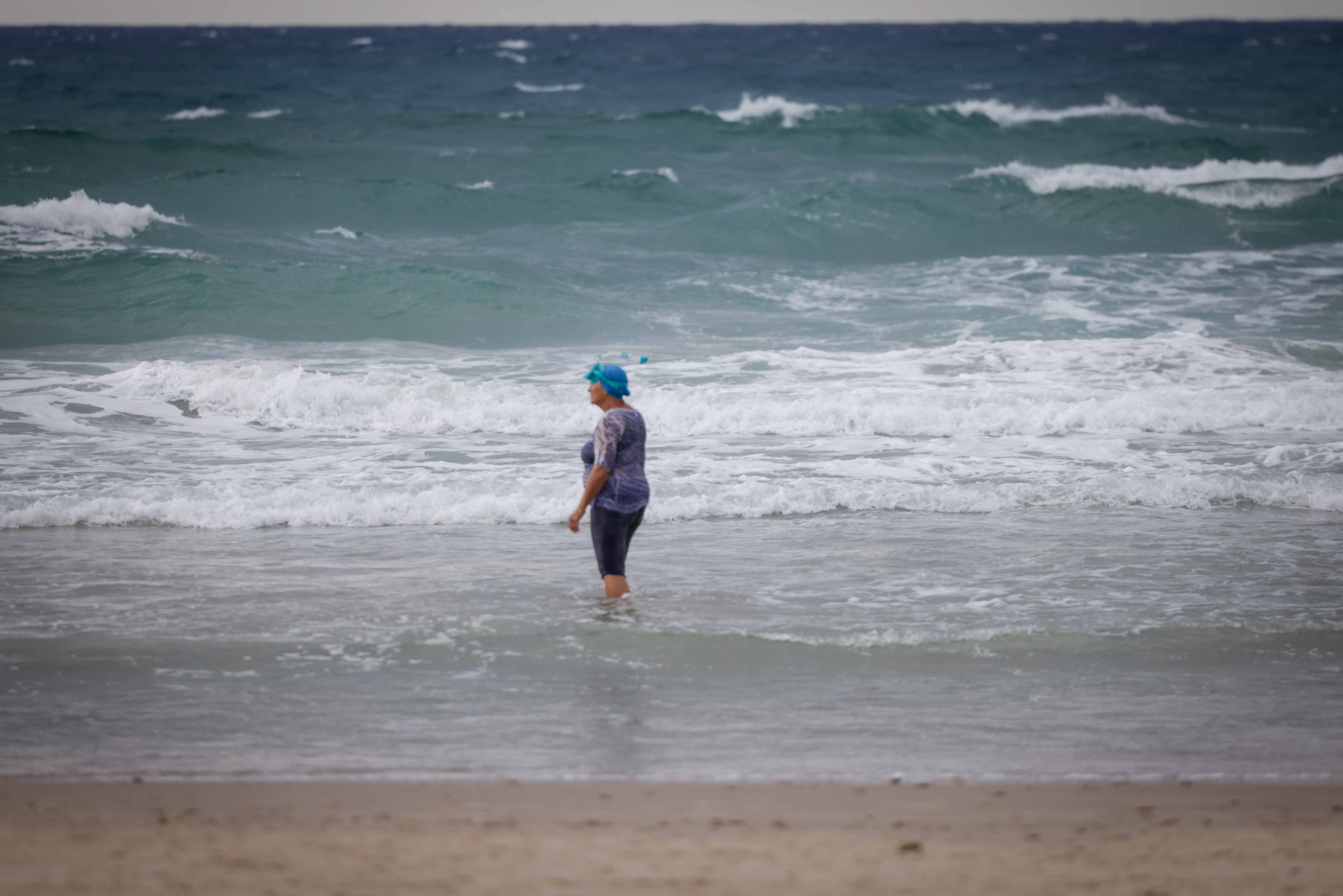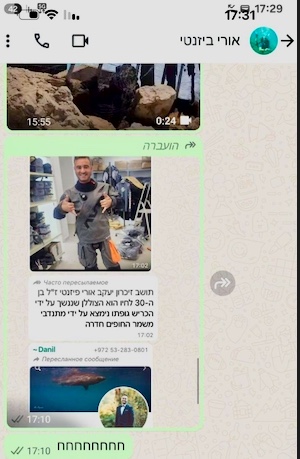Hadera Shark Attack: How Rumors About Uri Pizanti’s Death Spread and Why Verified News Matters
Our thoughts are with the diver’s family and the teams working to find him. Let’s let the facts guide the story.

This afternoon, a tragic shark attack off the coast of Hadera, Israel, left a diver missing and presumed dead. As news of the incident broke, social media platforms like Telegram buzzed with rumors falsely identifying the victim as Uri Pizanti, a founder of the Sharks in Israel Association. Despite these claims, Pizanti is alive and well, and the association has urged the public to stop spreading unverified information.
What Happened in Hadera
Around midday today (Monday), a diver was reportedly attacked by a shark near Hadera’s Fishermen’s Beach, close to the Hadera River estuary, an area known for shark sightings due to warm waters from the nearby power plant. Footage posted online showed the diver struggling in the water, and initial reports suggest he was fishing, possibly attracting sharks with the smell of blood.
The Israel Police and Maritime Police rushed to the scene after citizens reported seeing a shark attack. Magen David Adom’s emergency services received a call at 3:02 p.m. about a man bitten by a shark, but as of late evening, the diver remains missing, with searches ongoing using jet skis, boats, and helicopters. The Hadera Municipality’s Beach Division and ZAKA’s diving unit are assisting, though hopes of finding the diver alive are fading as nightfall complicates efforts.
The Sharks in Israel Association called the incident “tragic and serious,” noting that several sharks likely attacked the diver. They stressed that details are still unclear, including the victim’s identity and what he was doing. “We don’t know who the person is or what they were doing there,” they said in a statement.
The False Rumor About Uri Pizanti
As news of the attack spread, Telegram channels lit up with rumors claiming the victim was Uri Pizanti, a well-known figure in Israel’s marine conservation community and a founder of the Sharks in Israel Association. Some posts even falsely reported that Pizanti had died in the attack. These claims gained traction quickly, encouraged by the public’s familiarity with Pizanti’s work documenting sharks in Hadera, often alongside divers and aerial photographers.
The association quickly debunked the rumors, stating, “Uri Pizanti is a dear friend to us, one of our founders. He is alive and well, as usual, and doesn’t appreciate the rumors going around. Please avoid spreading unverified news.” They emphasized that Pizanti was not involved in the incident and urged people to wait for confirmed information.

The Hadera coast is no stranger to shark sightings, particularly in winter and spring when warmer waters attract dusky and sandbar sharks. This week, the Passover interim brought crowds to the beaches, and the association reported reckless behavior, like people grabbing sharks’ tails, hitting them with paddles, and throwing dead fish, despite warnings to keep their distance. These actions, combined with rising temperatures and dead fish in streams, have put sharks in a feeding frenzy, increasing risks.
Pizanti's name is synonymous with shark conservation in the area, making him an easy target for speculation when news of an attack broke. Social media’s fast-paced, unfiltered nature allowed the misinformation to spread before authorities or the association could clarify.
The false claim about Pizanti’s death shows why verified news matters. Social media platforms like Telegram and X can be breeding grounds for rumors, especially during crises. Unlike traditional news outlets, which aim to cross-check facts with police, emergency services, or eyewitnesses, social media posts often rely on hearsay or incomplete information. In this case, the rumor caused unnecessary distress to Pizanti, his family, and the conservation community, diverting attention from the real tragedy.
At Jfeed, you can trust us not to report unverified news. We reported the attack with restraint, noting the diver’s unknown identity and condition, based on police and Magen David Adom statements. We waited for confirmed details, avoiding the speculation that ran rampant online.
ZAKA’s diving unit commander, Roei Liberman, emphasized their readiness to assist with advanced equipment, but even they couldn’t confirm the victim’s status. Dror Gilat, a ZAKA deputy commander at the scene, said, “We’re hoping to find him as quickly as possible before nightfall,” showing the focus on facts over assumptions.
What We Can Learn
This incident isn’t just about a shark attack; it’s about how we consume and share information. Social media can be a powerful tool for real-time updates, but it’s also a minefield of misinformation. The rumor about Pizanti shows how quickly a false story can spread, causing harm and confusion. For those following the Hadera incident, sticking to verified sources like police statements, emergency service reports, or reputable news outlets is crucial.
The Sharks in Israel Association put it best: “We’ll wait to hear the facts and understand what happened.”
As the search for the missing diver continues, the focus should be on supporting the effort and honoring the tragedy, not adding to the noise with unverified claims.
Sources: Israel Hayom, The Times of Israel, The Scottish Sun, Sharks in Israel Association statement.